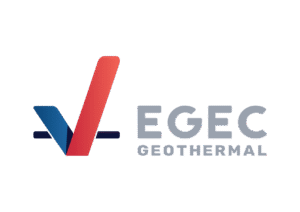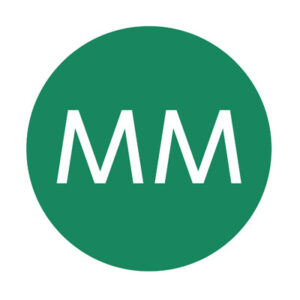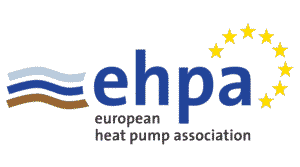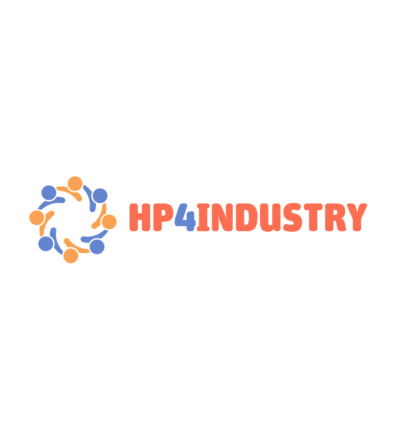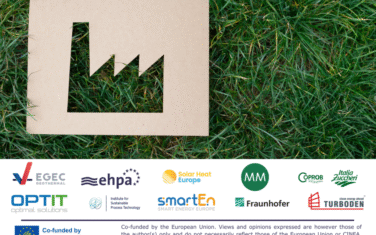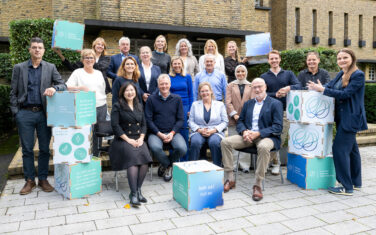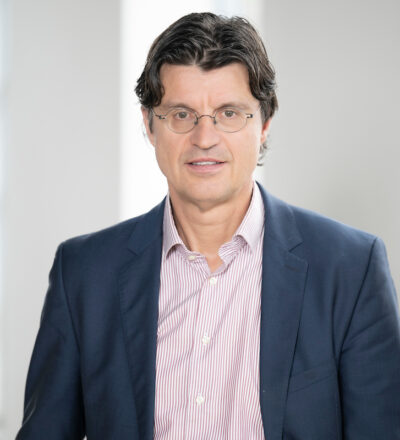Energy security and affordability is of big concern since 2022. Transforming how Europe powers its industries is urgent. The HP4INDUSTRY project pairs ambitious climate targets with concrete, replicable process integrated solutions for industrial heating and cooling, enabling cleaner, competitive manufacturing for Europe’s future.
In short:
- The EU’s energy and climate agenda: from the REPowerEU Plan and Fit for 55 to the Net Zero Industry Act — aiming to phase out fossil fuel dependence and accelerate the rollout of renewables and energy efficiency.
- Industrial process heating (two‑thirds of energy use in process industries) is still mostly fossil‑fuel based – significant decarbonisation potential exists particularly in the 30 °C–400 °C range.
- HP4INDUSTRY targets low‑ and medium‑temperature processes in the food & drink, pulp & paper and chemicals sectors- flexibly integrating heat‑pump solutions, solar and geothermal heat in a three‑phase approach.
Lower emissions, stay competitive
Europe’s process industries – crucial to manufacturing materials and components that underpin the economy- face a dual challenge: reduce greenhouse gases and stay competitive globally. Industrial process heat consumes about two‑thirds of the energy used across the sector, and around 30 % of that is in the low‑ to medium‑temperature range (30 °C–400 °C) where fossil fuels still dominate. Without transformation, emission targets and industrial resilience will remain out of reach.
At the same time, for many businesses this transition is complex: how to adapt and scale processes in such a way that fossil heat can be substituted, output maintained, and costs managed? That’s where tangible, sector‑specific models become a game‑changer.
About HP4INDUSTRY
This project takes a structured, three‑phase approach to industrial heating & cooling decarbonisation:
- Data gathering & frame setting: Map out heat and cold supply/demand of the process industry.
- Solution development & validation: Design and validate public examples of process-integrated heat‑pump and alternative heating systems (solar, geothermal) in selected sectors (food & drink, pulp & paper, chemicals). The project covers these industries because they have process heat at low and medium temperatures, which are suitable for the application of a heat pump.
- Replication & dissemination: Develop replicable models and spread the project results across all industrial sectors to ensure that the benefits extend beyond the pilot cases.
Expected results
- Developed detailed datasets on heat / cold supply & demand in target process‑industries.
- Example cases for integrated heat‑pump and alternative heat‑supply solutions in live industrial settings in food & drink, pulp & paper and chemicals sectors.
- Created replicable blueprints and business‑cases for scaling the integration of these technologies across Europe’s process industries.
- Established partner networks, guidelines and dissemination materials so that the transition continues beyond the project end‑date.
Acknowledgements

You might also be interested in
Acknowledgement & partners
LIFE Programme - EU’s funding instrument for the environment and climate action


